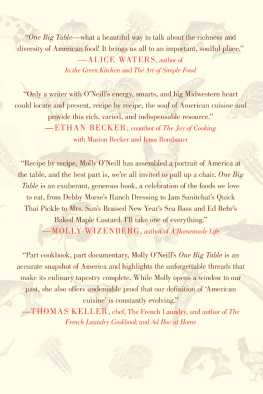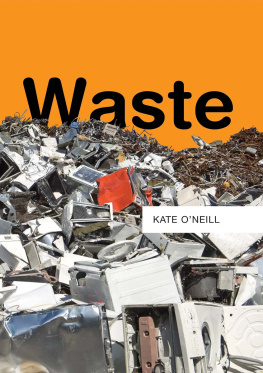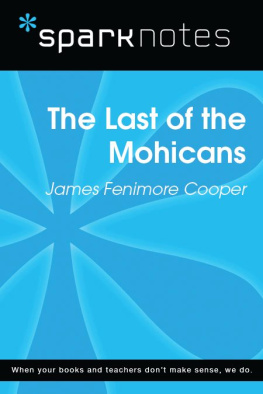Long Day's Journey into Night
Eugene O'Neill
2003, 2007 by Spark Publishing
This Spark Publishing edition 2014 by SparkNotes LLC, an Affiliate of Barnes & Noble
All rights reserved. No part of this publication may be reproduced, stored in a retrieval system, or transmitted in any form or by any means (including electronic, mechanical, photocopying, recording, or otherwise) without prior written permission from the publisher.
Sparknotes is a registered trademark of SparkNotes LLC
Spark Publishing
A Division of Barnes & Noble
120 Fifth Avenue
New York, NY 10011
www.sparknotes.com /
ISBN-13: 978-1-4114-7628-8
Please submit changes or report errors to www.sparknotes.com/errors.
10 9 8 7 6 5 4 3 2 1
Context
Long Day's Journey into Night is one of Eugene O'Neill's later plays. He wrote it for his wife on the occasion of their 12th wedding anniversary in 1940. The play was written in part as a way for O'Neill to show the world what his family was like and in what sort of environment he was raised. O'Neill wanted to create a play that would lay forth his own background in a forgiving nature, which is why he strove not to bias the play against any one character. The drama is very similar to O'Neill's family situation as a young man, but more importantly, it has become a universal play representing the problems of a family that cannot live in the present, mired in the dark recesses of a bitter, troubled past. Because of its deeply personal nature, O'Neill requested that the play be published posthumously, which meant that the play was not revealed to the world until O'Neill's death in 1956.
To be sure, O'Neill has always been seen as one of the greatest American playwrights. He was the only American dramatist to be awarded the Nobel Prize, an honor not bestowed upon either Arthur Miller or Tennessee Williams, two other great American playwrights. He won the Pulitzer Prize for four plays, including Long Day's Journey into Night. His other best known plays are The Iceman Cometh,Mourning Becomes Electra,Ah Wilderness!,Strange Interlude, and The Hairy Ape. O'Neill was a huge Broadway success during his own adult life.
For information on what his childhood was like, one does best to read Long Day's Journey into Night and examine the character of Edmund, who is partly autobiographical. O'Neill was the son of a Broadway actor and a mother who disliked Broadway. He suffered from tuberculosis, which caused him to have a nervous breakdown early in life. He was born in 1888, but he did not achieve success as a playwright until his 30th play, Beyond the Horizon, appeared in 1920. Around the same time, his father died, which devastated O'Neill, who had admired his father tremendously despite their differences.
After achieving success in 1920, O'Neill remained a dominant figure of American theater throughout his life. He had numerous personal problems, including failed marriage, but he was most captivated by his troubles and experiences growing up, before he found fame. The early part of his life is the subject of Long Day's Journey into Night, which will forever remain O'Neill's goodbye to the world--the play that showed America who O'Neill was and where he came from.
Summary
The play is set in the summer home of the Tyrone family, August 1912. The action begins in the morning, just after breakfast. We learn as the first act unravels that Mary has returned to her family recently after receiving treatment in a sanatorium for morphine addiction. Edmund, meanwhile, has in recent weeks begun to cough very violently, and we learn later on in the play that, as Tyrone and Jamie suspect, he has tuberculosis. Throughout the course of the play, we slowly find out that Mary is still addicted to morphine, much to the disappointment of her family members.
The gradual revelation of these two medical disasters makes up most of the play's plot. In between these discoveries, however, the family constantly revisits old fights and opens old wounds left by the past, which the family members are never unable to forget. Tyrone, for example, is constantly blamed for his own stinginess, which may have led to Mary's morphine addiction when he refused to pay for a good doctor to treat the pain caused by childbirth. Mary, on the other hand, is never able to let go of the past or admit to the painful truth of the present, the truth that she is addicted to morphine and her youngest son has tuberculosis. They all argue over Jamie and Edmund's failure to become successes as their father had always hoped they would become. As the day wears on, the men drink more and more, until they are on the verge of passing out in Act IV.
Most of the plot of the play is repetitious, just as the cycle of an alcoholic is repetitious. The above arguments occur numerous times throughout the four acts and five scenes. All acts are set in the living room, and all scenes but the last occur either just before or just after a meal. Act II, Scene i is set before lunch; scene ii after lunch; and Act III before dinner. Each act focuses on interplay between two specific characters: Act I features Mary and Tyrone; Act II Tyrone and Jamie, and Edmund and Mary; Act III Mary and Jamie; Act IV Tyrone and Edmund, and Edmund and Jamie.
The repetitious plot also helps develop the notion that this day is not remarkable in many ways. Instead, it is one in a long string of similar days for the Tyrones, filled with bitterness, fighting, and an underlying love.
Characters
James Tyrone - The husband of Mary and the father of Jamie and Edmund, he was once a famous actor who toured the U.S. with his wife. Because his Irish father abandoned him at age 10, forcing him to work immediately to support himself, he has a strong work ethic and an appreciation for money that leads to strong financial prudence--bordering on stinginess.
Mary Tyrone - The wife of Tyrone and mother of Jamie and Edmund, she struggles from a morphine addiction that has lasted over two decades. While she has broken the addiction several times, she always resumes her morphine use after spending more time with her family. She is on morphine in each scene of the play, and her use increases steadily as the day wears on. Although she loves Tyrone, she oftentimes regrets marrying him because of the dreams she had to sacrifice of becoming a nun or a concert pianist.
Jamie Tyrone - The elder Tyrone son, he is in his early thirties. Because he squanders money on booze and women, he has to rely on his parents for support. He dropped out of several colleges and has very little ambition, much to the dismay of his parents.
Edmund Tyrone - The younger Tyrone son, he is ten years younger than Jamie. An intellectual and romantic dreamer, he learns during the play that he is afflicted with consumption (tuberculosis), which means that he will have to spend up to a year in a sanatorium. Like his brother and father, he is partially alcoholic, and he has a tendency to squander money, although he works harder than Jamie. Mary always holds out hope that he will become a success one day.
Cathleen - The Tyrone family maid. She appears in the play only briefly. She is flirtatious and, by Act III, drunk.
Act I, Part One
Summary
The play begins in August, 1912, at the summer home of the Tyrone family. The setting for all four acts is the family's living room, which is adjacent to the kitchen and dining room. There is also a staircase just off stage, which leads to the upper-level bedrooms. It is 8:30 am, and the family has just finished breakfast in the dining room. While Jamie and Edmund linger offstage, Tyrone and Mary enter and embrace, and Mary comments on being pleased with her recent weight gain even though she is eating less food. Tyrone and Mary make conversation, which leads to a brief argument about Tyrone's tendency to spend money on real estate investing. They are interrupted by the sound of Edmund, who is having a coughing fit in the next room. Although Mary remarks that he merely has a bad cold, Tyrone's body language indicates that he may know more about Edmund's sickness than Mary. Nevertheless, Tyrone tells Mary that she must take care of herself and focus on getting better rather than getting upset about Edmund. Mary immediately becomes defensive, saying, "There's nothing to be upset about. What makes you think I'm upset?" Tyrone drops the subject and tells Mary that he is glad to have her "dear old self" back again.



















